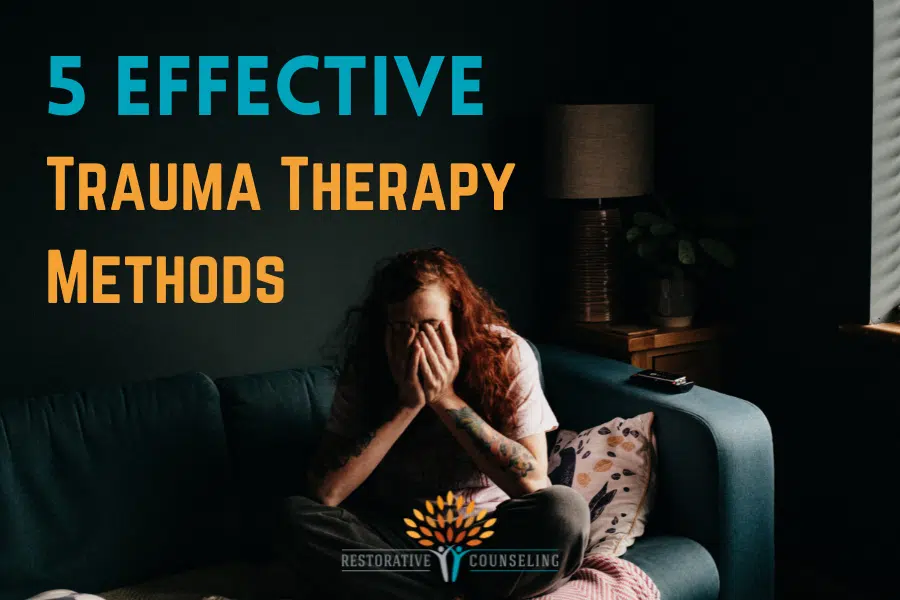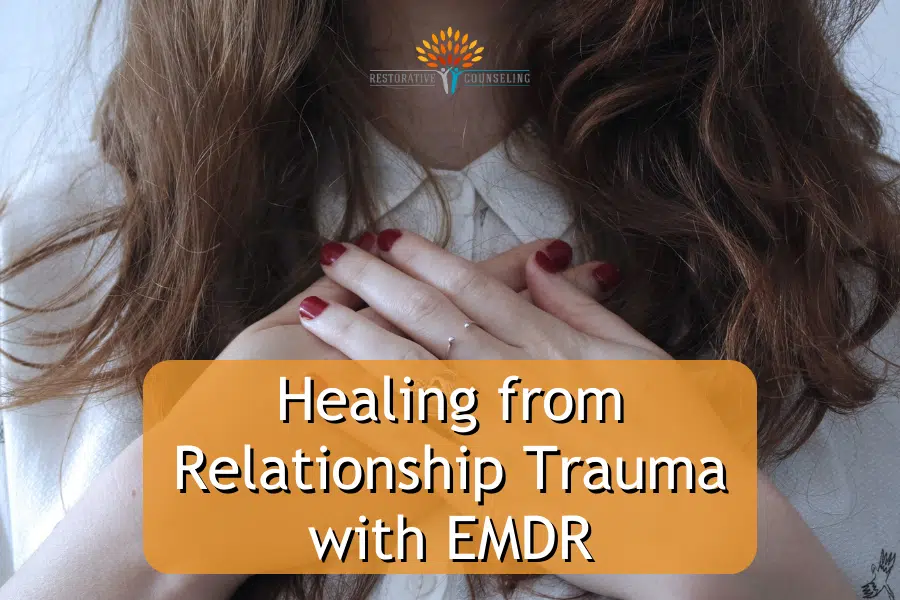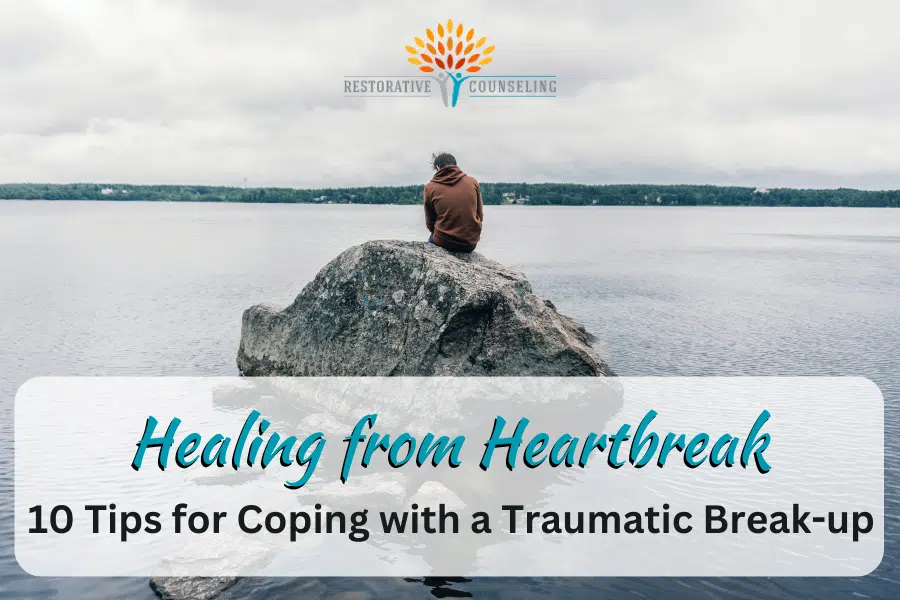Written by Jordan Meehan, LCSW
There are many options when it comes to finding effective trauma therapy. But what makes each option different? And what will be most effective?
Trauma is both easy and hard to define. Generally, trauma is any sort of experience that causes someone a high degree of distress. However, trauma is also relative to the person experiencing it. Therefore, not every person will react to a traumatic event the same way. As such, there are many trauma therapy techniques to address a person’s unique challenges.
What is Trauma?
What is the first thing that comes to mind when you think of the word “trauma”?
Just think.
Keep thinking.
Now, you were not given any context around which to think about the word “trauma.” However, your brain used your past experiences and knowledge to find known associations with that word. In this case, your brain recognized the word “trauma” as a familiar word. This is the way that the human brain analyzes information. The brain assesses the information to know how it needs to react and what it needs to do with the information.
The brain of a person who has lived through trauma goes through the same process. However, a brain affected by trauma doesn’t always know how to tell the difference between something harmless and the past traumatic event. As a result, a person impacted by trauma may develop a variety of mental health disorders.
While this list is nowhere near exhaustive, these are some typical sources of trauma:
- Mass and community violence events
- War
- Car accidents
- Sexual abuse/physical abuse/emotional abuse
- Childhood neglect
- Domestic violence
- Witnessing traumatic events
Effective trauma therapy is crucial to help people who have experienced trauma heal.
Reach out to schedule an appointment with a trauma-informed therapist today.
Evidence-Based Approaches to Trauma Therapy
3.6% of the US adult population experienced PTSD in the past year. 1
Post-Traumatic Stress Disorder (PTSD) is one of the more talked-about disorders that can result from trauma. However, many other common disorders can stem from trauma as well.
Some of the most common include:
- Anxiety disorders
- Depressive disorders
- Panic disorders
- Personality disorders
In many cases, the symptoms brought on by trauma are extreme versions of healthy reactions to stress. Therefore, proper diagnosis is key to getting proper treatment.
There are many psychotherapy treatments for trauma. However, only a few are backed up by extensive research and can be called “evidence-based.” While there is no single “best” trauma therapy, people may find that they respond better to one type of treatment over another. Here are the top treatments for trauma-related concerns.
1. Cognitive Behavioral Therapy (CBT)
CBT focuses on recognizing problematic thinking patterns and working to change them, which then helps change behavior patterns. This treatment requires a person to engage in weekly appointments to learn skills that can be used to manage their symptoms. Throughout the course of treatment, a person will practice skills outside of sessions. Meanwhile, the provider will make sure to address any barriers and highlight progress. Standard CBT traditionally takes 12 to 16 weeks.
2. Prolonged Exposure Therapy (PE)
This is a specific type of CBT that primarily applies behavioral therapy techniques. In PE, individuals are gradually exposed to their trauma-related memories, emotions, thoughts, and physical sensations. Since avoidance is a common symptom of trauma, PE helps people stop avoiding their trauma reminders. The types of exposures may include:
- Imaginal exposures: Recounting the details of the traumatic event.
- In vivo exposures: Repeatedly confronting trauma-related situations or people in their everyday life that they have been avoiding.
- Interoceptive exposures: Creating and then experiencing feared physical sensations that are associated with the trauma but are actually harmless.
3. Cognitive Processing Therapy (CPT)
CPT focuses on reevaluating how a person thinks following a traumatic event. This treatment targets the way people view themselves, others, and the world around them. Often, problematic or irrational thinking keeps a person “stuck” and makes recovery from trauma challenging. The CPT protocol helps a person assess their trauma and the impact it has on their thinking. A person learns skills to evaluate if their thoughts are factual, and develops more helpful ways to think about their trauma. CPT is particularly helpful for those that have a lot of shame about their traumatic event.
4. Trauma-Focused Cognitive Behavioral Therapy (TF-CBT)
Designed for children and teens, TF-CBT works to improve a range of trauma-related outcomes in minors. This treatment takes anywhere from 8-25 sessions and treatment involves both the child and a caregiver or trusted adult. TF-CBT is one of the most effective trauma therapy methods available to help youth recover from Post-Traumatic Stress Disorder.2 TF-CBT addresses other trauma-related challenges like anxiety, depression, and behavior problems. Also, the caregiver or trusted adult can relieve their distress about the child’s traumatic event and learn effective parenting skills.
5. Eye Movement Desensitization and Reprocessing Therapy (EMDR)
EMDR is different than most talk therapies. It does not require a person to explain their trauma in detail. Instead, a person will do eye movements or tapping while focusing on an image related to the trauma. EMDR therapy helps a person become “unstuck” so their brain can go through its’ natural healing process. It is designed to help a person quickly resolve traumatic memories. Unlike other therapies, there is no focus on changing emotions, thoughts, or behaviors related to the trauma. Often, EMDR therapy can be completed in far fewer sessions than other talk therapies.3
6. BONUS: Medication
Medication can be used in combination with any of the methods above. Mental health professionals commonly prescribe selective serotonin reuptake inhibitors (SSRIs) for trauma-related concerns like depression and anxiety. Also, for those with panic and anxiety symptoms, benzodiazepines may be prescribed for as-needed use. However, medication only dampens the intensity of symptoms; its use alone will not allow a person to recover from their trauma.
Finding a Trauma-informed Therapist
Working with a therapist who is specifically trained or certified in one of these methods can help you resolve your trauma. At Restorative Counseling, several of our therapists are trained in a variety of trauma-focused treatments.
There’s hope for healing.
You don’t have to face your trauma alone. We have trained and caring therapists who can help you heal from your trauma. Get started by booking a virtual counseling session.
References:

Hi, I’m Jordan!
I partner with teens and adults to treat concerns related to trauma, anxiety, and relationships utilizing CBT, ACT, and EMDR approaches. Read more about me.
Follow Restorative Counseling
Sign up for our newsletter




